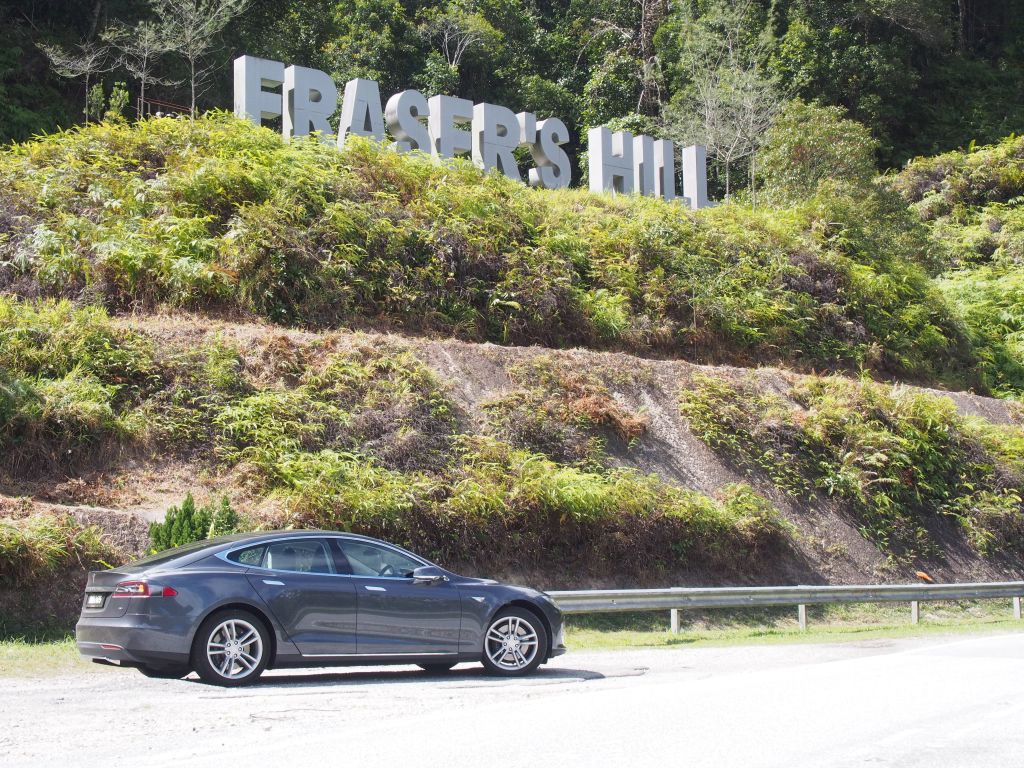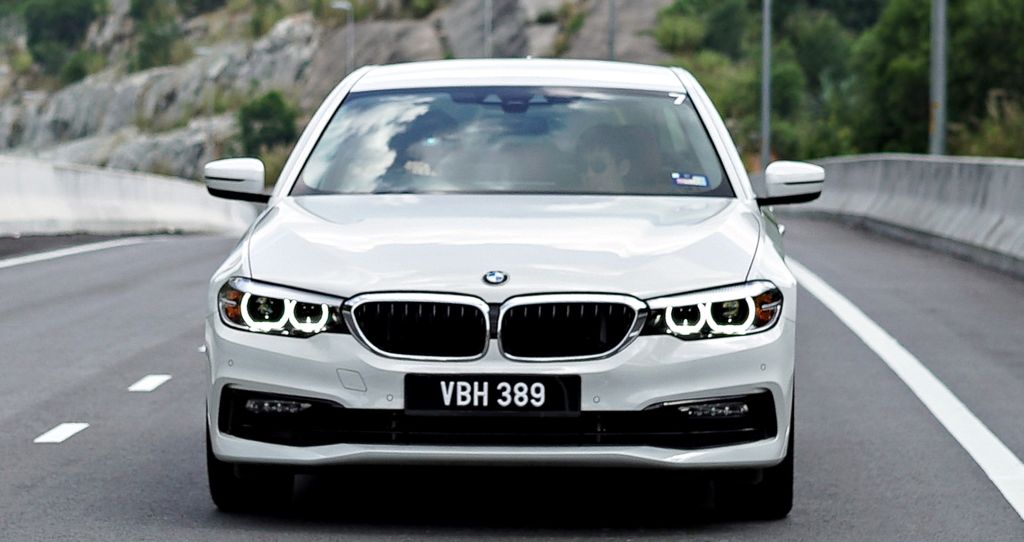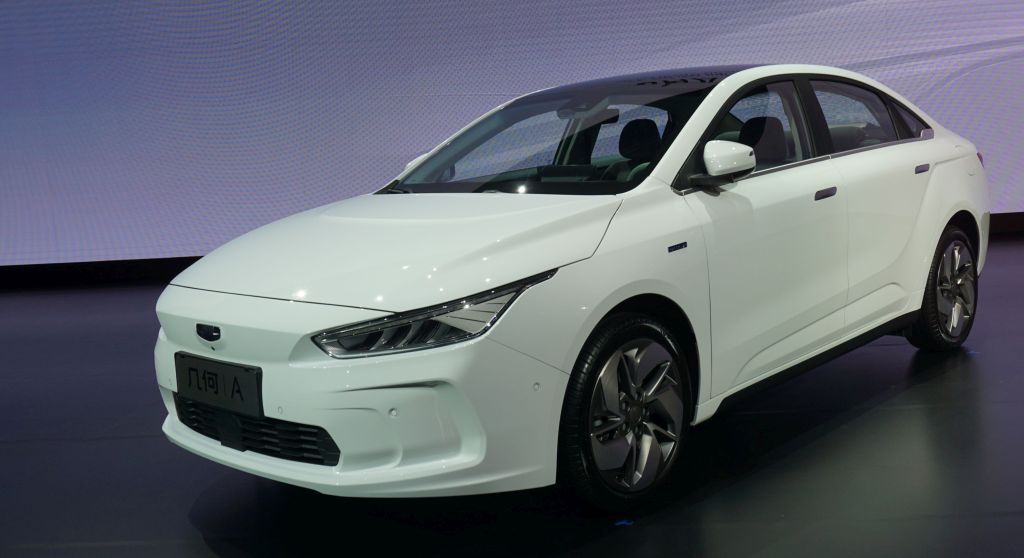The EQC (left) keeps company with the C 300 e plugin hybrid (middle) and the S 560 e plugin hybrid earlier this month.
PETALING JAYA: The all-electric Mercedes-Benz EQC was previewed in Malaysia recently, and the crossover SUV (sports utility vehicle) is the first of a new breed of battery-powered electric vehicles (EVs) from the luxury German automaker.
With increasingly tighter emission standards in Europe and many developed nations, vehicle electrification is the way forward for many global automakers.
At this year's Geneva Motor Show, Ola Kallenius who was recently appointed Daimler AG chairman, said "An electric heartbeat for our entire fleet - that's the future" as Mercedes-Benz reiterated its future strategy of a massive expansion in offering EVs and plug-in hybrid (PHEV) vehicles.
Japanese automakers like Toyota Motor Corp have also stepped up plans for electric cars, with more than 10 EV models in the pipeline worldwide by the first half of the 2020s, starting with a rollout in China in 2020.

The uptick in the demand and roll-outs of EVs is also partly thanks to improved lithium-ion battery technology which allow shorter charging durations and longer driving distances.
While EV users still need to plan their journeys and battery charging locations, "range anxiety" is becoming less of an issue.
This year, Nissan will deliver a longer range e+ version of its LEAF, Europe’s top-selling 100% electric car, which has a new 62kWh battery with a range of 385km.
The EQC has a range of up to 471km and the forthcoming Taycan four-door sports saloon, which is Porsche's first pure electric car, is expected to have a range of over 500km.
However, consumers at large are still not keen on adopting EVs due to concerns about the sticker prices, rapid depreciation rates and future lithium-ion battery replacement costs.
In countries like Malaysia with high duties for imported cars, selling EVs in significant numbers are especially tough.

In 2013, Mitsubishi Motors Malaysia and Edaran Tan Chong Motor (local distributor for Nissan vehicles) introduced the all-electric i-MiEV and LEAF respectively, but consumer reception was weak and sales eventually stopped.
The 2013 i-MiEV compact electric car with a 150km range was launched at around RM136,000 and came with a 5-year warranty that included the battery pack, and a 5-year free maintenance deal.
It sold just 30 units before Mitsubishi Motors discontinued sales a year later. Meanwhile, the 2013 five-door LEAF hatchback with a 195km travel range was priced at RM168,800 on-the-road, with a three-year or 100,000km warranty (whichever comes first).
To date, Edaran Tan Chong Motor has sold 27 units of the LEAF and the company has plans to launch the second-generation LEAF in the third quarter of 2019.
It's hardly any surprise that Malaysian sales for the i-MiEV and LEAF were very low, when you can pay perhaps RM90,000 less and get equivalent sized petrol-powered cars.
For the time being, EVs in Malaysia will continue to be driven in the realm of those with deep pockets and a penchant for exotic machines.
In recent years, grey import units of the all-electric Tesla Model S large luxury hatchback have been brought in at sticker prices upwards of half a million ringgit.
Also, Malaysian Green Technology Corp (GreenTech Malaysia) bought a small fleet of Model S cars for lease to the government and government-linked companies (GLCs).

The Model S in 2016.
GreenTech Malaysia is a unit of the Ministry of Energy, Science, Technology, Environment & Climate Change and it was reported two years ago that it had received 17 units of the Tesla Model S.
Also, another factor when considering the purchase of an EV is the charging duration for the battery pack and the costs of installing a home or office charging unit.
It's always better to have a home or office charging unit that can charge the EV significantly faster, rather than wait hours for the car to be fully charged from a domestic wall socket.
However, buying and installing a charging unit is not cheap.
For example, back in 2013, a 6.6kWh wall-mounted charging unit which can fully power up the Nissan LEAF in four hours, cost RM6,500 inclusive of installation.
Today, a charging wallbox unit for EVs or PHEVs from premium European marques can cost more than RM5,000 to RM7,000 and this excludes the estimated RM2,000 cost of installation.

A check with the ChargeNow Malaysia website shows that owners of BMW PHEVs will need to fork out RM1,888 to install a 16A single phase wallbox.
Still, there is a growing infrastructure for charging PHEVs and EVs in Malaysia, as seen from data on the website of ChargEV, which is GreenTech Malaysia's EV charging solutions provider.
ChargEV says the company has installed 251 public EV charging stations across 192 locations nationwide as of December 2018.
ChargEV subscribers pay an annual membership fee of RM240 and get an RFID card which enables charging of their EVs for free at the charging stations.
ChargEV says it has 5,500 subscribers for its services and has recorded 70,851 EV charging sessions.
The 5,500 ChargEV subscribers are a good indication of the strong acceptance among premium car buyers for PHEVs from Mercedes-Benz, BMW and Volvo Cars which have seen sales boomed for such cars in recent years thanks to tax incentives designed to spur local assembly of EEVs (energy-efficient vehicles).


These customised tax incentives resulted in significant reduction in sticker prices for these premium cars, and the sales of cars like the BMW 330e M Sport benefited tremendously.
For example, without the EEV incentives, the 330e M Sport would be priced RM130,000 higher. As it is, the 330e M Sport is priced at a more accessible RM258,800.
However, it should be noted that such customised tax breaks can be removed or changed drastically, and as such, the strong sales of premium PHEVS in Malaysia is unlikely to last.
New policies on hybrid cars, PHEVs and EVs have yet to be announced by the present government, and for now, automakers selling such cars in Malaysia are operating based on previously established tax incentives.
Automotive policymakers in Malaysia should take note that global demand and sales for PHEVs and EVs are predicted to continue rising rapidly in the coming years, with major automakers such as Volkswagen, Toyota Motor Corp, BMW and Daimler AG already swinging their mighty financial clout towards making better EVs, with hybrids seen as a transition towards all-electric cars.
In Japan and the United States, Toyota has introduced another alternative to zero-emission mobility, namely the the all-electric Mirai sedan which has a 500km driving range, and - meaning it's dependent on hydrogen refuelling stations.
While cars with fossil fuel powered internal combustion engines (ICE) will be the bulk of auto sales for decades to come, their numbers will be slowly whittled away as more hybrids and EVs go mainstream.
According to the EV Volumes database site, global sales of EVs and PHEVs reached 2.1 million units in 2018 (a 64% year-on-year jump) and had a share of 2.2% in the global light vehicle market for 2018.
The largest growth contributor by far was China, where sales increased by over 500,000 units to 1.2 million in 2018.
Meanwhile, a report by RnR Market Research predicts that global sales of electric vehicles will surge to 4 million units in 2020, 12 million units in 2025 and 21 million units in 2030 with accompanying cuts in production costs.
"As per current cost, the market will be at a tipping point in 2022 when a BEV will have almost the same cost as a fossil fuel ICE-powered vehicle, which means electric vehicle can be selected on an equal footing," says RnR Market Research.
READ MORE:
Electricity billionaire is building the Tesla of Thailand
Talk time with Geometry EV boss

Geometry is a full electric sub-brand under Geely. Shown here is the Geometry A.




![New Porsche Panamera arrives, price starts from RM1.3mil 2024-05-02 16_08_21-[PRESS RELEASE] More digital, more luxurious, more efficient_ the new Panamera -](https://da4dkroembtou.cloudfront.net/wp-content/uploads/2024/05/2024-05-02-16_08_21-PRESS-RELEASE-More-digital-more-luxurious-more-efficient_-the-new-Panamera--351x245.jpg)





